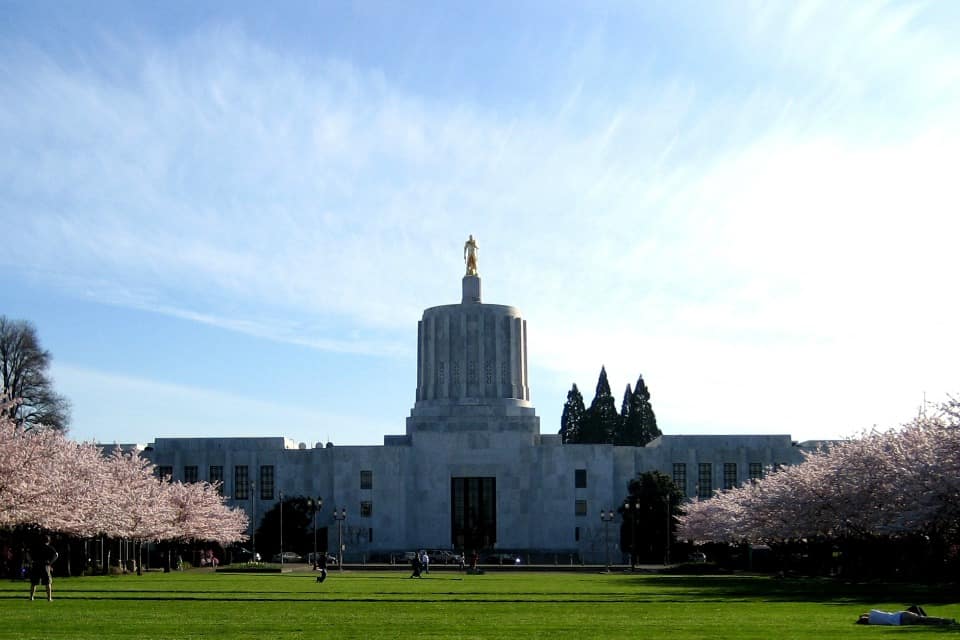- Home
- News
- Opinion
- Entertainment
- Classified
- About Us
 MLK Breakfast
MLK Breakfast- Community
- Foundation
- Obituaries
- Donate
12-02-2024 1:24 pm • PDX and SEA Weather

SALEM, Ore. (AP) — Oregon would adopt one of the country’s most ambitious timelines for eliminating carbon dioxide emissions from its power grid under a bill being considered by the Legislature this year.
House Bill 2021 — a product of negotiations between the state’s largest utilities, environmental justice groups, renewable energy boosters and more — advanced out of one House committee late last month. It must now navigate the state budgeting process before final votes in the House and Senate.
Oregon Public Broadcasting reports the bill sets a timetable by which Oregon’s two major power companies, Portland General Electric and Pacific Power, must eliminate emissions associated with the electricity they provide. Five “electricity service suppliers” in the state also would face regulation, though their emissions are tiny compared to the big utilities.
At least 17 other states and the District of Columbia have already adopted similar goals, according to the Clean Energy States Alliance.
But advocates say Oregon’s plan stands out in both approach and timeline. The bill requires PGE and Pacific Power to submit plans to reduce emissions by 80% from a baseline amount by 2030, 90% by 2035, and completely eliminate emissions by 2040.
That end date is notably ambitious. It’s a nearer deadline than nearly every other state that has adopted a clean power plan, including Washington and California.
Oregon would measure its progress in an atypical way, too. Most states have opted to ratchet down greenhouse gas emissions by requiring utilities to gradually increase the amount of power they get from renewable energy sources like wind and solar. Oregon, which has already had such a “renewable portfolio standard” since 2007 is taking a more straightforward approach: requiring PGE and Pacific Power to reduce their overall carbon emissions, which are tracked by the state’s Department of Environmental Quality.
“What we’re doing is harder, but I think it’s more honest,” said Bob Jenks, executive director of the Oregon Citizens’ Utility Board, which advocates on behalf of utility customers and supports the bill.
By targeting emissions, Jenks and others say, Oregon can focus on more than just ramping up its use of renewables. It can also place a premium on helping the state use power in a smarter, more efficient manner.
Unlike the ambitious cap-and-trade proposal that would have ratcheted down emissions throughout the economy, and developed many enemies as a result, HB 2021 touches far fewer entities. And many support the bill.
“We feel optimistic enough that we can get (to zero emissions) that we were willing to move forward to support this,” said Sunny Radcliffe, director of governmental affairs and energy policy at PGE, the state’s largest electric utility.